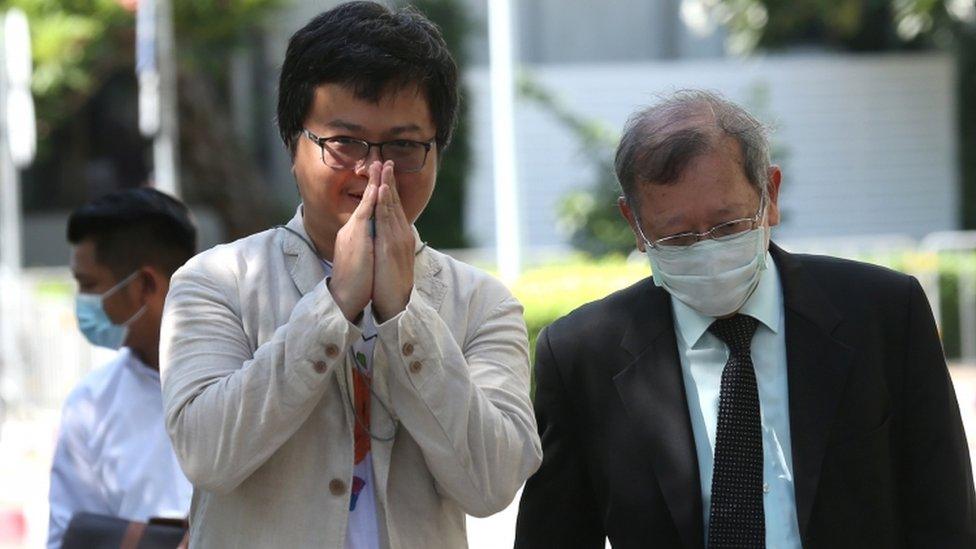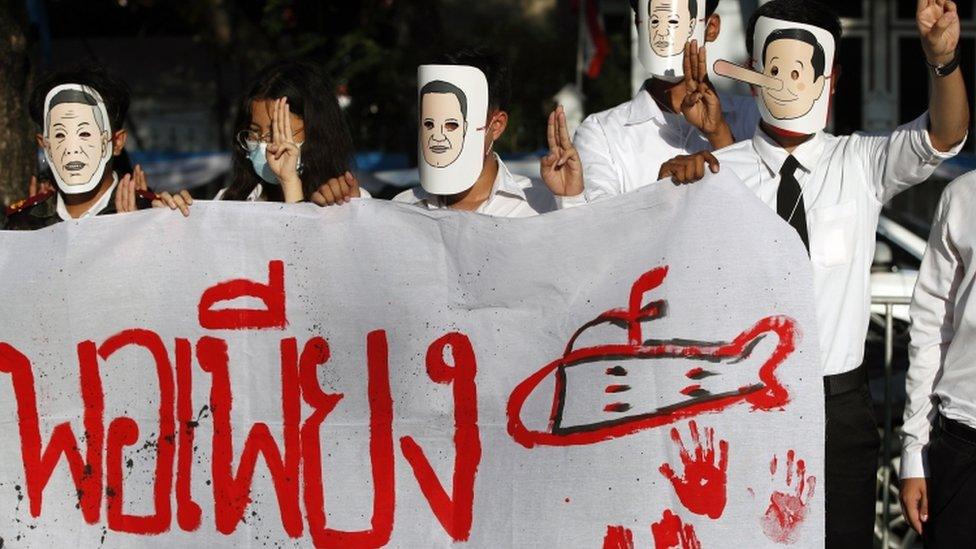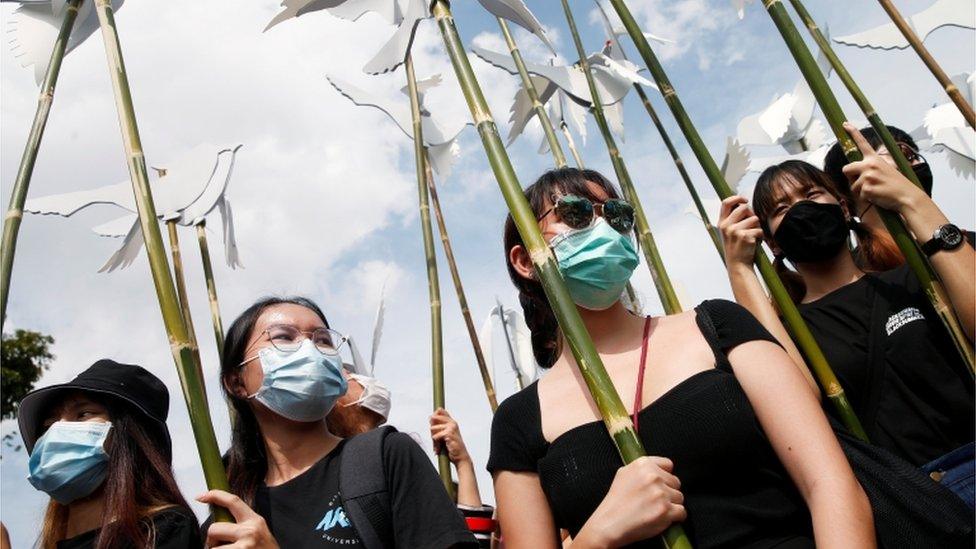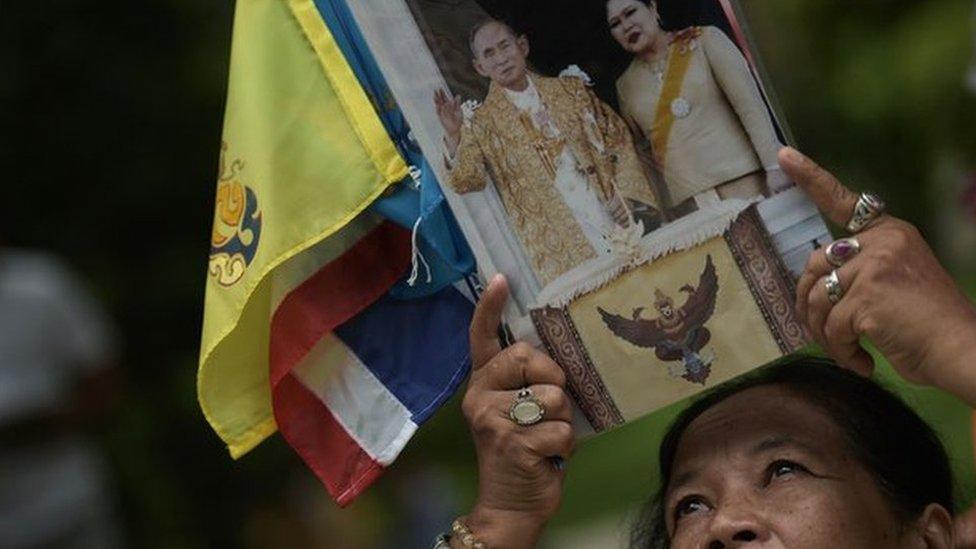Thai protests: Lawyer Anon Nampa to be jailed over bail breach
- Published

Anon Nampa (L) said his renewed detention amounted to harassment
Two prominent activists charged over recent anti-government protests in Thailand are to be jailed after a court revoked their bail.
Anon Nampa and Panupong Jadnok were detained last month over a protest in Bangkok at which calls for political reform were made.
They and at least nine others including students and rappers are accused of sedition and breaking virus rules.
Protesters are demanding an end to military influence over politics.
They also want Prime Minister Prayuth Chan-ocha, who came to power in a 2014 military coup, to resign.
Why are the activists being jailed?
On Thursday a court in Bangkok ruled that Mr Anon, 36, and Mr Panupong, 24, had breached their bail conditions by taking part in protests.
The pair were sent to pre-trial detention because they declined to post bail again, arguing they had stuck to their bail conditions, Mr Anon's lawyer Weeranan Huadsri told Reuters news agency. They can be held for up to 48 days, Mr Huadsri said.
Mr Anon, a human rights lawyer, said his renewed detention amounted to harassment.
"My duty outside of prison has ended, and I wanted to gamble everything for change," Mr Anon wrote in a Facebook post before the court hearing.
He urged people to join another anti-government rally planned for later this month.
What are protesters demanding?
Mr Anon and Mr Panupong were arrested over a Harry Potter-themed protest that took place in Bangkok on 3 August.
At the protest he and other activists made a bold public call for reform of the monarchy.
He stressed that he wanted to reform, not overthrow, the constitutional monarchy. However his comments broke a taboo in a country where few dare to openly discuss the institution.

Students have led a growing movement for political reform in Thailand in recent weeks
Protesters also seek an end to the harassment of political opposition, a new constitution and fresh elections.
Also detained were activists Baramee Chairat, Suwanna Tarnlek and Korakot Saengyenpanm, and two popular rappers from the group Rap for Democracy.
The activists were charged with provoking unrest and violating coronavirus restrictions, and could face prison sentences of up to seven years if convicted of sedition. All were later released on bail.
How does Thailand's lese-majeste law work?
Thailand's strict lese-majeste law forbids insults to the monarchy. Those found guilty of breaching it face up to 15 years in jail.
But in recent weeks, students and other activists have led growing calls for political change in defiance of the law.
Critics say the military-backed government uses the law to clamp down on free speech, and the UN has repeatedly called on Thailand to amend it. But the government says the law is necessary to protect the monarchy, which is widely revered in Thailand.
Thais are taught to respect, revere and love the monarchy, but also to fear the consequences of speaking about it.
The anti-government rally in Bangkok is thought to be the biggest in Thailand for six years
- Published16 August 2020

- Published6 October 2017
